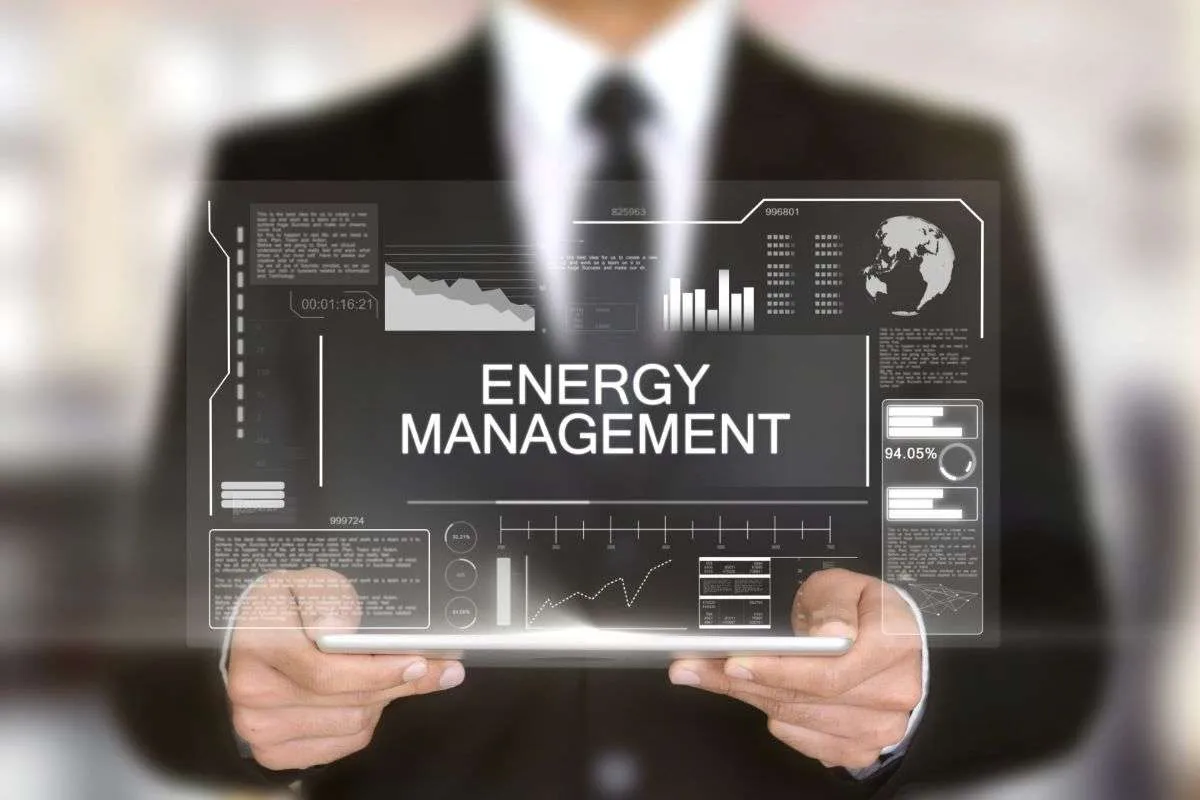Energy management (EnMS)
Energy efficiency is providing the same or better service using less energy. Energy services are all the benefits we derive from energy use, such as illumination, thermal comfort, cooking, transport of people and freight, and many industrial and agricultural functions. Increasing end-use energy efficiency is often the least expensive and one of the most effective ways to meet demand for energy services while reducing energy consumption and the associated climate and environmental impacts. While it may be difficult to imagine energy that is not consumed, energy efficiency is a significant global energy resource that plays an essential role in the path to decarbonization.
Energy efficiency can be achieved through:
⦁ Whole systems design improvements using Integrative Design (best option)
⦁ Use of more efficient (smaller, simpler) and fewer components and materials
⦁ Control improvements (e.g., energy audits, programmable thermostats, and variable speed motors)
⦁ Electrification (e.g., vehicles, heating in buildings)
⦁ Elimination of waste (e.g., better design to use materials more efficiently, increased recycling, use of recovered heat)
⦁ Behavioral incentives (e.g., tax credits and rebates, public information programs)
Energy Management System (EnMS)
EnMS is a management system that empowers organizations to plan, review, improve, and identify for the energy consumption patterns in an organization.
Energy management incorporates operations and planning functions of energy generation and energy usage & consumption units. Planning includes Energy Objectives, which are resource optimization to minimize the energy consumption patterns, and ultimately it leads to cost savings. The users have the required access to the energy they require but the optimization of energy is the core focus.
EMIS
⦁ The analysis and monitoring system for energy is known as Energy Management Information System (EMIS).
BEMS
⦁ The building energy management system is often referred to as BMS/BEMS.
An EnMS is a comprehensive framework and a systematic approach to energy management through which a company develops its processes to have control and enhancement of energy performance. An EnMS has two distinct elements within its domain. One is related to Management aspects and the other is related to “Technical” aspects.
The EMIS is a major component of the EnMS. The EMIS gathers data that provides inputs to numerous aspects of the EnMS such as:
• The energy review
• The calculation of an energy baseline
• The EnPIs(Energy Performance Indicators)
• The verification of the action plan results
The EnMS Explicates the important data to be reviewed and list the critical EnPIs (Energy Performance Indicators) which are identified on the basis of SEUs (Significant Energy Uses).
Ensures future improvement action is based on the important performance data; collected from EMIS. Future action plans are also based on clear policy and plan related to energy management.
Energy is defined as “electricity, fuels, steam, heat, compressed air and other similar media”.
Energy Use and Energy Consumption
Energy use is defined as “application of energy.”
Examples are lighting, ventilation, heating, cooling, transportation, data storage, production process. It is important to note that Energy use is also referred to as “energy end-use”.
Energy consumption is defined as “quantity of energy applied”.

Energy Efficiency
Energy efficiency is defined as “ratio or other quantitative relationship between outputs of performance, service, goods, commodities, or energy, and an input of energy.”

Significant Energy Use (SEU)
Significant energy use (SEU) is defined as “energy use accounting for substantial energy consumption and/or offering considerable potential for energy performance improvement”.
It is important to note here that Significance criteria are determined by the organization herself. SEUs can be facilities, systems, processes, or equipment.

Energy Review
Energy review is defined as “analysis of energy efficiency, energy use and energy consumption-based on data and other information, leading to identification of SEUs and opportunities for energy performance improvement”.

Energy Performance
Energy Performance is defined as “measurable results related to energy efficiency, energy use and energy consumption”.
It is important to note here that Energy performance can be measured against the company’s objectives, energy targets and other energy performance requirements. Energy performance is one part of the performance of the energy management system.

Energy Performance Indicator EnPI
Energy Performance Indicator EnPI is defined as “measure or unit of energy performance, as defined by the organization”.
An example can be of power consumption in producing per unit which is given by Kilowatt Hour consumption per production unit.

EnPI Value
Energy performance indicator value EnPI value is defined as “quantification of the EnPI at a point in or over a specified period of time”

Energy Performance Improvement
Energy performance improvement is defined as “improvement in measurable results of energy efficiency, or energy consumption related to energy use, compared to the energy baseline”.

Energy baseline EnB
Energy baseline EnB is defined as “quantitative references providing a basis for comparison of energy performance .

Conservation initiatives
Waste heat recovery systems, cogeneration, and the utilization of alternative sources of energy are also important for the conservation of energy.
Technology, upgradation, modernization, and the introduction of control instrumentation are necessary to realize the full potential of energy conservation in industry.
Identification of Energy Conservation Opportunities
{a} Fuel substitution
{b} Energy generation
{c} Energy distribution
{d} Energy usage by processes
{e} Technical and Economic feasibility
The technical feasibility should address the following issues
• Technology availability, space, skilled manpower, reliability, service etc
• The impact of energy efficiency measure on safety, quality, production or process.
• The maintenance requirements and spares availability.
{f} Energy Audit
{g} Energy Audit Reporting
Benefits of EnMS
• Enhanced operational efficiencies for energy consumption.
• Minimized energy intensity.
• Organization of Energy data for factual decision-making.
• Support for organizational and cultural change.
• Drivers for organizational integration.
• Minimized environmental impacts.
• Gain advantages over competitors that do not optimize resource management.
• Proof for your organization as a socially responsible company.
• Better positioning for Carbon emissions.
EnMS is becoming an effective way for governments, private and public organizations to minimize energy consumption with saving energy or utilizing energy at an optimum level, thus costs are minimized.





